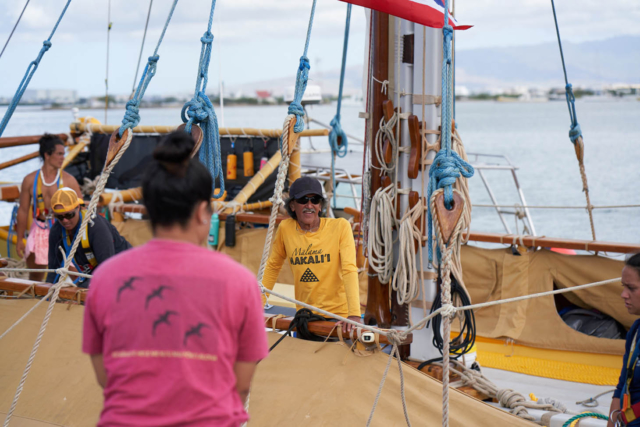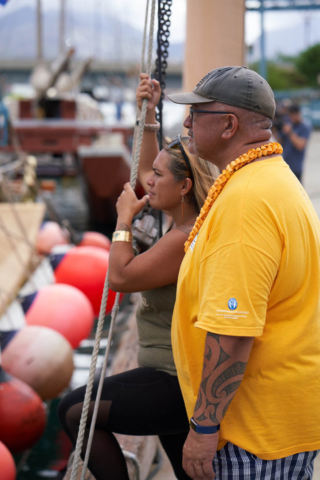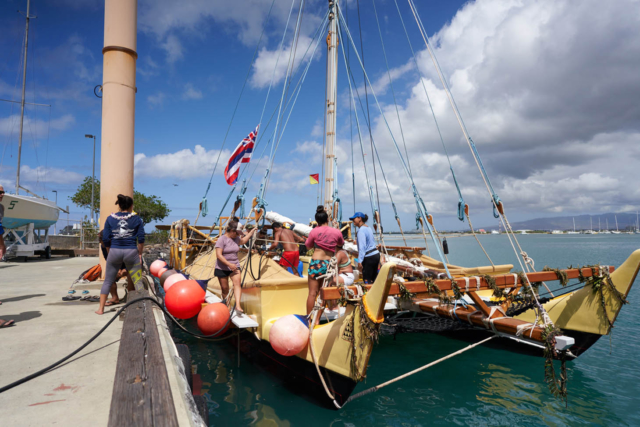
Deep Sea Voyaging Canoe Makaliʻi Arrives at Sand Island, Prepares for Voyage to Northwestern Hawaiian Islands
- Posted on 10 Jun 2019
- In News, Newsletter, Photo Galleries, Teachers, Updates, Voyaging
Makaliʻi’s Hanaunaola Voyage will be the first in modern times provisioned entirely from food grown, harvested, and prepared from Hawaiʻi
Deep sea voyaging canoe Makaliʻi arrived at Sand Island’s Marine Education Training Center (METC) this morning at 10:30 a.m. The canoe departed Kawaihae Harbor on June 7. The crew will spend the next couple of days preparing for a 10-day voyage to the Northwestern Hawaiian Islands of Nīhoa and Mokumanamana.
Makaliʻi’s Hanaunaola Voyage Preparations
The Voyage is made possible by a Department of Health and Human Services Administration for Children and Families grant for the Administration for Native Americans (ANA). Project Hanaunaola: Sustaining The Generations Through Voyaging is in the final year of a three-year grant with this 10-day voyage being the culminating event. This voyage to Mokumanamana is done in partnership with the Edith Kanakoaʻole Foundation, which has been conducting research about and at Mokumanamana for the past 14 years.
Makaliʻi’s crew will be making preparations for the voyage at METC from June 10-12. Their departure date is dependent on weather and finalization of preparations.
The voyage brings to practice two major objectives of the grant, which are 1) Train crew for leadership legacy, 2) Work with community to feed the canoe and become self sustainable
All photos © 2019 John Bilderback
About Makaliʻi
Nā Kālai Waʻa (NKW) has been offering educational experiences to our community since the birth of Makaliʻi in 1995. Programs, reflect the NKW vision statement, “He waʻa he moku, he moku he waʻa” (the canoe is an island, the island is a canoe). The curriculum is holistic and focuses on the relationship of all elements from the most fertile upland slopes to the deepest parts of our ocean. Through this pedagogy, programs focus on the individual’s development and contribution to their own communities. As kumu (teacher) and crew, NKW recognizes the strengths of each haumāna (students) and helps them develop those strengths both as individuals and as part of their community. Another important component of NKWʻs educational pedagogy is family learning. NKW builds canoes and programs that build communities. When families engage in a program together, learning often continues after the family has left the program to return home.
Through the years NKW has found that the canoe is the perfect educational platform to engage learners, both local and international, in basic academics, especially math and sciences. These STEM programs are perfectly married to the cultural aspects of voyaging so well that often students don’t even realize that they are performing tasks from simple measurements and conversions of units to complicated physics formulas that determine speed. When our learners see the direct application of these STEM and other academic skills in a cultural setting, it is easy for them to see the relevance to their everyday lives as well.









